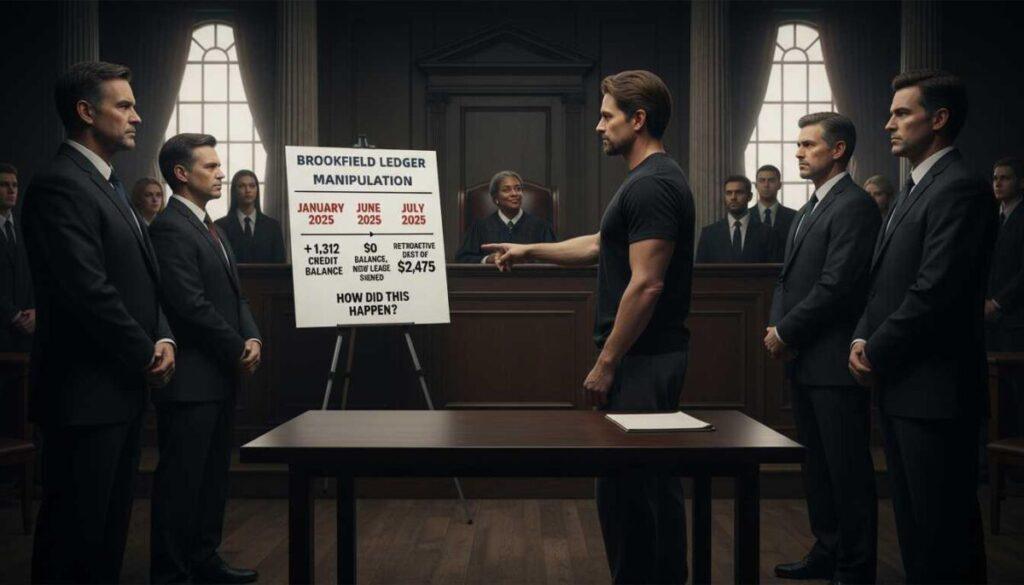Stuart v. Brookfield Properties – A Veteran’s Fight for Fair Housing
A U.S. Air Force veteran has filed a lawsuit against Brookfield Properties — over what he calls years of billing harassment, fraud, and retaliation.

Background
Michael Stuart, a former Realtor and electrical engineer from Ohio State University, rents an apartment at the Element in downtown Dallas Texas, through a federal housing program for disabled veterans. His rent is fixed by law, with the remainder paid directly by Dallas County.
Stuart has excellent credit and rental history at the Element going on six years, but nearly every summer, Brookfield’s billing system suddenly shows large “balances due.” These mistakes are blamed on “system errors.”
In 2025, the issue escalated into something far worse, when Michael questioned the leasing manager about the “strange” repeated over charges.
The Breaking Point
In June 2025, the system created an overcharge for the sixth year in a row. Still recovering from a spinal surgery, Stuart filed a complaint in a Dallas court, seeking transparency, with the hope these “assumed” system glitches would stop.
Ten days later, Brookfield retaliated.
The “Audit” That Created a False Debt
On July 24, 2025, Brookfield’s assistant manager emailed Stuart, the VA, and Dallas County, claiming that a “recent audit” had uncovered a correction from last year — and that he now owed a debt, from his previous lease, equal to six times his rent.
An attached ledger showed no rent payments had been made since December 2024 and added months of back-dated late fees.
Within an hour, a Dallas country recipient replied, questioning how that could be true for a tenant on automatic payments. Stuart responded with his bank statement showing the rent had, in fact, been paid.
The Smoking Gun
Brookfield’s own manager later signed a sworn statement admitting that before the “audit” she reviewed the account and confirmed it had a credit balance — not a debt.
Internal logs from Brookfield’s payment partner, BILT Technologies, reveal what really happened: on December 18, 2024, a credit was manually deleted, creating the illusion of unpaid rent. That missing entry never appeared on the version of the ledger shared with government agencies.
The Court Steps In
The 101st District Court quickly issued a Temporary Restraining Order (TRO) stopping any eviction, collection, or credit-report activity while the case proceeds.
To prove good faith, Stuart deposited the disputed amount with the court — showing he would pay anything he owed and that he was only fighting a fabricated balance, that was created in retaliation, for questioning a “strange” yearly over charge.
What’s at Stake
The lawsuit exposes how automated billing systems used by corporate landlords can turn technical errors — or deliberate data changes — into life-altering crises for tenants. When those tenants are disabled veterans or elderly, the consequences reach far beyond one apartment.
For six years, a similar pattern has appeared each summer. Now, the court will decide whether Brookfield’s “system errors” were mistakes — or something more.
Why It Matters
At its core, this case asks a fundamental question:
Can powerful landlords manipulate tenant ledgers to silence those who challenge their aggressive practices?
For thousands of renters, the answer could reshape accountability in an era where algorithms manage people’s homes.
View Case Documents
Case filings, legal analysis, references, and videos